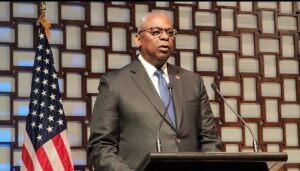Fiji’s water supply system’s current state has prompted calls for the corporatisation of the Water Authority of Fiji (WAF).
The Fiji Fiscal Review Committee argues that this move would secure the financial and operational autonomy necessary for the utility’s success.
In a letter to the Minister for Finance, Professor Biman Prasad, the committee chaired by lawyer Richard Naidu pointed out the urgent need for improvements in water and sewerage services.
It highlighted persistent failures in urban water supply, insisting that corporatisation will grant WAF the independence to establish a sustainable revenue stream and manage its finances and operations more effectively. This, in turn, the committee stated would benefit consumers and ease the burden on government finances in the long term.
The letter was a response to a request made to the committee to identify key recommendations from its 2023 report, which contains over 150 recommendations, for inclusion in Fiji’s 2024-2025 Budget and the forthcoming fiscal year.
The committee emphasised that despite additional funding from the government, the long-term needs of WAF remain unmet.
“These include ensuring that WAF has an effective, independent revenue stream of its own, greater financial autonomy, and the ability to focus on service delivery and better capital expenditure,” the Committee noted.
Recent climate events, such as heavy rain and landslides disrupting water supply in Suva, underscore the critical need for resilient infrastructure, the committee added.
“For reasons largely unexplained, the effective corporatisation of WAF, including allowing it to implement a pricing regime that would properly fund its operations and infrastructure, has been ignored for more than 10 years. The consequences for consumers, investors, and government finances are serious and frequently felt in the form of water supply failures.
“Most consumers pay only 15 cents for 1,000 litres of water, which is a ridiculously low amount,” the report states, adding that many consumers have not been reassessed for their ability to pay in the last ten years.

The committee also notes and is encouraged by a WAF customer engagement survey that shows that a broad base of consumers were willing to pay more for improved service reliability.
“WAF reports widespread customer acceptance of a rate of at least 50 cents per 1,000 litres,” the report reveals.
Implementing this rate could potentially triple WAF’s annual revenue from just over $40 million to over F$120 million, providing the financial stability needed for significant infrastructure investments.
“If WAF remains underfunded because of the low pricing of its supply, it will continue to burden government general revenue and will not be able to fund the capital expenditure needed to ensure better and more reliable water supply.”
The committee pointed to the success of the corporatisation of the Fiji Electricity Authority (now Energy Fiji Limited) that could be replicated in WAF.
“WAF needs to rapidly move to the same regulated commercial footing,” the Committee stated. “WAF needs reorganization and additional sources of funds now, not later, so that it can make up for lost time on necessary infrastructure investment.”
The Fiscal Review Committee includes Lisa Apted as Deputy Chair, Riyaz Ali, Vani Catanasiga, Edwin Chand, Neelesh Gounder, Matelita Katamotu, Fantasha Lockington, Kirti Patel, Pradeep Patel, Naibuka Saune and Viliame Takayawa.
Professor Biman is scheduled to announce the country’s 2024-2025 Budget at 10am this Friday.









